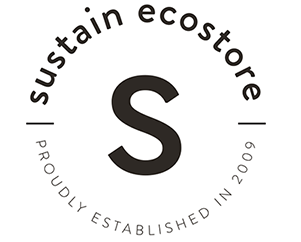Detoxify and Green Your Laundry

The fashion industry has a heavy impact on the environment, especially in its intensive use of water. But, despite that, here's an interesting thought: 80-90% of the environmental impact of clothing happens after you buy it and when you do laundry. I, and hopefully you, am a little shocked by that, but also really buoyed by it because it means I can DO something about it and so can you! Here's a fact: There are approximately 88 million dryers in the U.S. alone, each emitting more than a ton of carbon dioxide per year. Think of what a difference it would make not to use one?
What follows is a list of things you can do on your next laundry day to immediately start reducing your impact, but first, a word on chemicals in your laundry. I still remember, years ago before I was conscious of my habits and the products I used, I pulled a white dress out of its protective bag. It had been years since I had worn it, and as I removed it from the bag immediately the very strong smell of fabric softener washed over me. I realized then that something just wasn't right, as you shouldn't be able to still smell your detergent and softener YEARS after it's been used. It turns out that most commercial detergents are petroleum-based, which is a non-renewable resource, creates pollution to manufacture, doesn't break down in water (your grey water is then a pollutant), can irritate the skin, can disrupt endocrine function, and aggravate asthma or allergies. Moving onto the smell: that sickly sweet, industrial-strength perfume is a cocktail of synthetic chemicals such as phthalates which are endocrine disrupters, neurotoxic, and carcinogenic—it truly goes on and on. I buy all of my daughter's clothes and most of mine second-hand, and I've noticed that even after washing them, the scent of detergent on the clothes from the previous owner still clings; it takes 3-4 washes with outdoor line-drying for it to go away completely. At Sustain we have tried many different green laundry detergents and we're happy to say we've found some that work wonderfully. Here are some basic tips on what to look for to detoxify your laundry routine. Your skin and that of your family's is next to laundered fabric 24/7, hence it is an important (yet simple) area to focus on!

CHOOSE A GOOD DETERGENT
The surfactant (cleansing and sudsing agent) should be plant-based, not petrochemical. Many eco alternatives are made with coconut-based surfactants.
Avoid any synthetic fragrances, which are endocrine disrupters, possible carcinogens, irritants and allergens. All fragrance should be listed as plant-derived (100% pure essential oils are considered safe)—the word 'fragrance' if used alone is often a hidden source of phthalates.
GET AN HE-MACHINE
The average household does almost 400 loads of laundry each year, consuming about 13,500 gallons of water. Switching to an Energy Star-qualified front-loading machine can save as much as 7,000 gallons of water per year, which, over the life of a washer is enough to provide a lifetime of drinking water for six people! An Energy Star-qualified clothes washer can also save you $550 in operating costs over its lifetime meaning that it will pay for itself. I wish that were true for all things!
WEAR MORE THAN ONCE
Did you know that you actually shouldn't wash your jeans very often? Levi Strauss recommends every two weeks! That has more benefit that simply retaining that perfect denim shade, it's one of the biggest things you can do to reduce your laundry footprint. Unless you sweat through your t-shirt on a hot day, hang it up and wear it another day (I'll exempt you from socks and undies!). You can also spot wash stains (which I frequently do by keeping a spray bottle of natural stain remover handy) to avoid having to wash the entire garment.
WASH ONLY FULL LOADS
Some "smart washers" will weigh your load and adjust the amount of water needed, but you are using energy too, so as a rule wait to wash until you have a full load.
USE COLD WATER
The energy required to heat the water is a big chunk of the energy expenditure.
DITCH THE DRYER
The dryer is the number two energy glutton in your home, next to the fridge, and costs about a $100 per year to use, plus as mentioned earlier its carbon footprint is kind of massive. Why not skip it and put up a clothesline or use a drying rack? I have always found that clothes smell AMAZING after being hung to dry in the sun, and ironically fabric softener companies have been trying to synthesize that smell for years. Ha! Just go straight to the source, it's free, radically energy efficient and nontoxic. As a bonus, your clothes won't be a wrinkled mess. (PS - these old-school clothes pegs are awesome!)
IF YOU MUST, THEN FOLLOW THESE DRYER DO'S
If using a dryer is still a must for you then there are still a few things you can do to maximize it. First up, look for a machine that has a moisture sensor if you are buying new (or see if yours has one already), which shuts the machine off when your clothes are dry. Also, clean the lint trap after every use, as even a small amount of lint can significantly reduce the efficacy of your dryer. Do all your loads consecutively as you'll be taking advantage of residual heat. And finally, don't use dryer sheets which are a chemical cocktail your skin could really do without. Use wool dryer balls instead—the wool contains natural oils that soften the clothes and the balls create space between the clothes which increases airflow thus reducing dry time by up to 30%.



